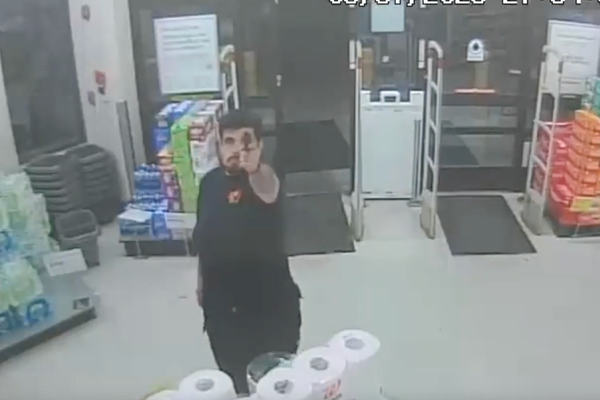Moderna crushed third-quarter expectations on Thursday and turned around a surprise profit. But Moderna stock pulled back from a steep premarket gain.
"When is a beat not a beat?" Leerink Partners analyst Mani Foroohar queried in a report.
He noted Moderna's beat stemmed from sales of Covid vaccine, Spikevax, which occurred in the third quarter as opposed to the fourth. This is evidenced by the fact Moderna retained its full-year outlook for $3 billion to $3.5 billion in sales. Further, sales of the respiratory syncytial virus vaccine, mResvia, came in well below expectations.
"Fourth-quarter guidance rests on three assumptions," he said. "Spikevax market share (constant at 40%), vaccination rates (flat to down 10%) and mResvia performance (no uptick) — which, if met, would equate to the low end of the fourth-quarter U.S. sales guidance of $200 million to $500 million."
Moderna stock closed down 2.9% at 50.29. That pulled back from a bigger 9.4% gain in earlier action.
Moderna stock has a poor IBD Digital Relative Strength Rating of 5. This puts the stock's 12-month performance in the bottom 5% of all stocks. Shares also have a low Composite Rating of 6 out of a best-possible 99, a reflection of weak fundamental and technical metrics.
Moderna Stock: Light RSV Vaccine Sales
Respiratory syncytial virus, or RSV, is a seasonal virus that causes coldlike symptoms in most people. But it can be serious or deadly in people with diminished immune systems. Moderna's mResvia is approved for people age 60 and older.
During its first quarter on the market, mResvia generated just $10 million in sales. The Street projected $132 million, according to FactSet.
Jamey Mock, the company's chief financial officer, says mResvia is likely to be a 2025 story. Moderna gained Food and Drug Administration approval for mResvia in late May. By then, most of the contracts had been awarded to Pfizer and GSK. The duo gained approval for their RSV vaccines in 2023.
"We really missed the majority of the contracting season," he told Investor's Business Daily. "It's a very competitive market, although the good news about the respiratory market is it's often a large market."
Meanwhile, Moderna stock remains under pressure. Shares hit a 2024 high at 170.47 in late May, but have slumped more than 69% since then. The pressure increased markedly in mid-September when Moderna slashed its research and development budget for 2027, issued a light 2025 outlook and delayed its breakeven point by two years.
Covid Sales Drive Beat
Together, the RSV vaccine and Moderna's Covid shot generated $1.9 billion in sales. That handily beat expectations for $1.25 billion.
Mock noted there have been 19 million Covid vaccinations administered this season through the end of October. That's ahead of the same period last year. Whether it tops the 28 million vaccinations in 2023 remains to be seen.
Still, the good news is the Covid vaccination market appears "sizable and durable," he said.
"What you see from this vaccination season is that, for two years now on the commercial market, there is a motivated population that wants to get protected," he said. "I think that's what a lot of people were wondering."
Unexpected Profit
Moderna unexpectedly earned 3 cents per share, on a strict, as-reported basis. That flipped from a year-earlier loss of $9.53 per share. Analysts called for a loss of $1.94 per share. On an adjusted basis, they expected a steeper $2.55 per-share loss.
Still, analysts project continued losses in the upcoming quarters. Mock acknowledged that's likely to be the case as Moderna invests in its portfolio and platform.
"That will mean losses," he said. But "we're encouraged that we're getting more productive. So maybe the loss won't be as much as we had once thought. But certainly we continue to invest because we think bringing these 10 new products to market as fast as possible is really what our strategy is and will help change and shape the trajectory of the company."
Plans For The Remainder Of 2024
Before the end of the year, Moderna plans to ask the FDA to approve its next-generation Covid shot and its RSV vaccine for high-risk adults age 59 and younger. Moderna also plans to ask for approval of its Covid/flu combination vaccine, depending on FDA feedback. But it won't use a priority review voucher to speed along the process.
That's a "bearish shift from prior timing expectations," Leerink's Foroohar said.
Mock noted it's a timing matter. Moderna learned as much with its mResvia launch.
"That's largely a commercial decision because we do not think it will be ready in 2025 at the right time," he said. "If it's approved later in 2025, it really won't be able to sell well in 2025. So, we didn't want to utilize an asset like a priority review voucher which is not cheap."
Follow Allison Gatlin on X, the platform formerly known as Twitter, at @IBD_AGatlin.







